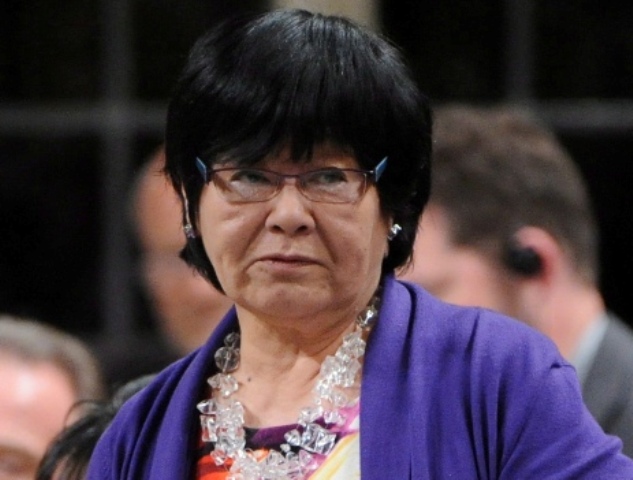This past week witnessed a major cabinet reshuffle by PM Stephen Harper. Bev Oda, the former Minister of International Co-operation and head of the Canadian International Development Agency (CIDA), resigned following a heavily publicized controversy regarding her expensive spending habits while on business trips for the agency. Harper has since named Julian Fantino—former chief of the Toronto Police Services—as her replacement, a move which came as a surprise to those working in the development community. The appointment of a politician with seemingly little experience in the area of international development has many questioning what the federal government’s long-term vision for it’s international aid policy is, and several wondering if one even exists.
Oda’s Legacy
Although she is leaving the agency under a shadow of controversy, even Oda’s critics credit her with implementing a series of necessary reforms during her five-year tenure as the head of CIDA. Two reforms stand out as the most important: increasing transparency within the agency and “untying” Canadian aid. Tied aid is a form of bilateral aid which stipulates that the country receiving the aid must use it to purchase goods and services produced in the donor country. The development community has long criticized tied aid, seen by many as an inefficient form of protectionism seeking to promote the interests of the donor country above those of the recipient. Buying goods and services from the donor country is often more expensive, with the Organization for Economic Cooperation and Development (OECD) estimating that tied aid reduces efficiency anywhere from 15-30%. Although untying Canada’s bilateral aid is a step in the right direction, it was one of the last western donor countries to do so, and 20% of its aid still remains tied. Oda also made a number of changes geared towards improving the transparency of CIDA. The organization has faced heavy criticism for its lack of transparency, especially when deciding whether or not to fund a particular NGO or projects. Under Oda several steps were made to work towards changing this situation.
[captionpix align=”left” theme=”elegant” width=”320″ imgsrc=”http://www.acdi-cida.gc.ca/INET/IMAGES.NSF/vLUImages/Home-CLF2.0/$file/Countries-of-Focus-big.gif” captiontext=”CIDA’s countries of focus.”]
Despite these positive moves, there are a growing number of worrying trends evident in CIDA’s shifting priorities over the past several years. The organization has been criticized for abandoning poor, low-income African countries, instead favouring middle-income countries in Latin America. This move is largely perceived as an attempt to link Canada’s bilateral aid program to its trade interests in the region. Another controversial change is the recent relationship between CIDA and Canadian mining companies, with CIDA providing funds to NGOs working under the umbrella of these corporations. Development experts have heavily criticized the move, calling it “a new perversion of the old discredited tied aid formula”.
Where is the Strategic Vision?
In a recent peer review published by the OECD, the authors concluded that the greatest shortcoming of Canada’s international development policy is that it lacks a clear and coherent strategic vision for Canadian aid that is anchored in its overall foreign policy. This concern is frequently echoed by political scientists and development specialists. Without a top-level vision for the future of Canadian aid and development goals and strategies, it is extremely difficult for CIDA to follow through on a genuinely focused and effective plan for its role in international development. Many of CIDA’s shortcomings can be attributed to this lack of an overarching vision. Failing to convince both the federal government and the Canadian population in general that a strong agency for international development is invaluable to Canadian foreign policy and global interests was perhaps Oda’s largest failure during her time as Minister of International Cooperation. This lack of vision is particularly evident when considering CIDA’s constantly shifting priorities. It is notoriously difficult to use international aid to achieve meaningful and long-lasting accomplishments. Successfully implemented aid packages can take years—if not decades—before real, sustainable benefits can be realized. With CIDA shifting its thematic and country priorities every few years, it is going to be nearly impossible for this to happen.
[captionpix align=”left” theme=”elegant” width=”320″ imgsrc=” http://images.ctv.ca/archives/CTVNews/img2/20101111/416_CP24_fantino_101111.jpg
” captiontext=” Fantino was promoted to Minster for International Cooperation a day after Bev Oda’s resignation.”]
The appointment of Julian Fantino as Minister of International Development has many wondering whether or not Prime Minister Stephen Harper takes international development seriously. In the most recent federal budget, bilateral aid received some of the largest cutbacks. The current percentage of Canada’s GDP allocated to aid is already low—a mere 0.31%—and will continue to fall over to only 0.27%. This was likely the result of a carefully calculated political move—there is good reason to believe that the general public will not react to the aid budget being cut. If Canada is going to continue to spend over $5 billion US dollars annually on international aid, there needs to be an entire overhaul of the way in which it is delivered. Bilateral aid has a very real potential to cause more harm than good. If Fantino wishes to avoid this being the case for aid delivered by Canada, he will need to convince the federal government of the importance of taking it seriously. Unfortunately, the first task will likely be for others to convince Fantino himself of this fact.




